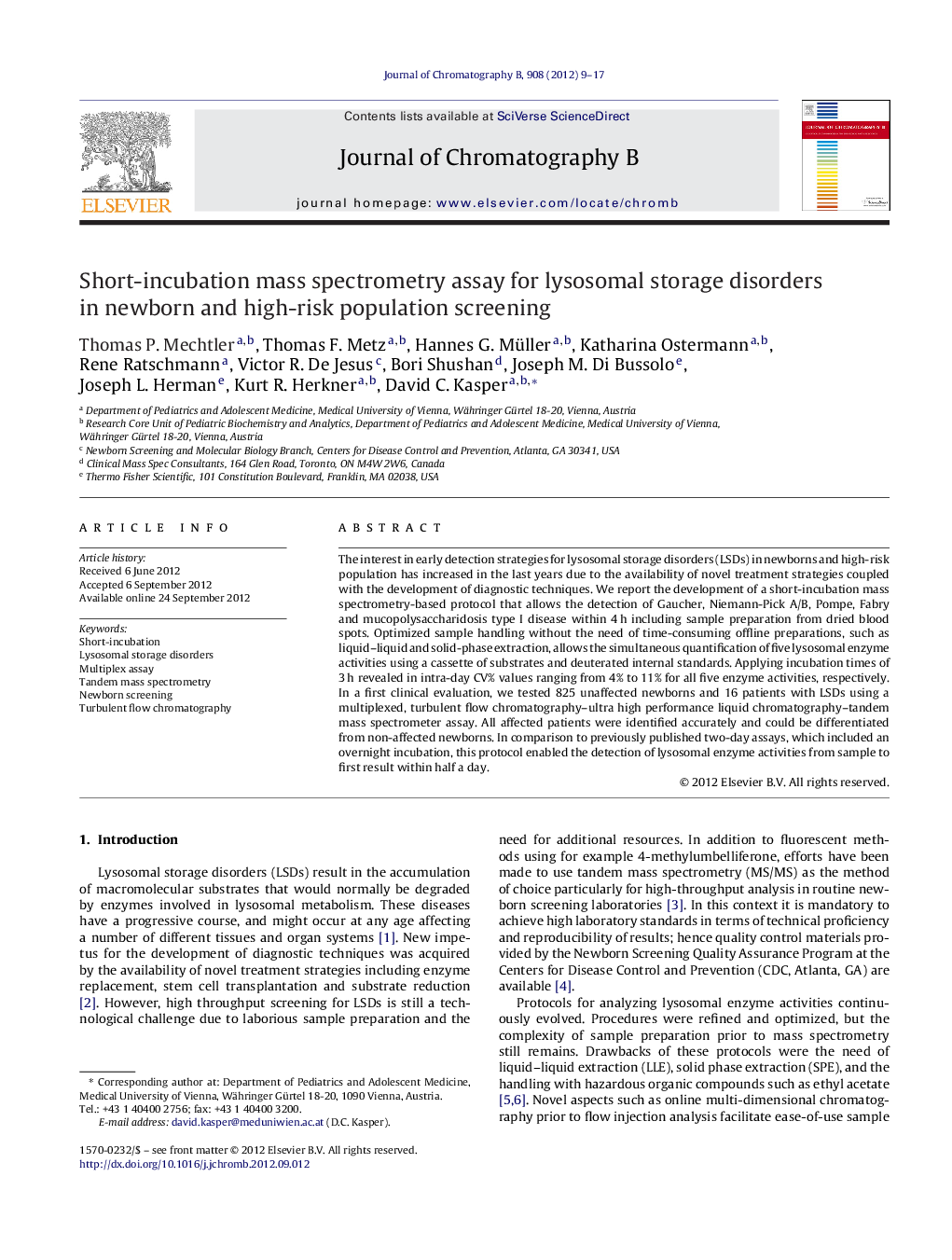| Article ID | Journal | Published Year | Pages | File Type |
|---|---|---|---|---|
| 1213680 | Journal of Chromatography B | 2012 | 9 Pages |
The interest in early detection strategies for lysosomal storage disorders (LSDs) in newborns and high-risk population has increased in the last years due to the availability of novel treatment strategies coupled with the development of diagnostic techniques. We report the development of a short-incubation mass spectrometry-based protocol that allows the detection of Gaucher, Niemann-Pick A/B, Pompe, Fabry and mucopolysaccharidosis type I disease within 4 h including sample preparation from dried blood spots. Optimized sample handling without the need of time-consuming offline preparations, such as liquid–liquid and solid-phase extraction, allows the simultaneous quantification of five lysosomal enzyme activities using a cassette of substrates and deuterated internal standards. Applying incubation times of 3 h revealed in intra-day CV% values ranging from 4% to 11% for all five enzyme activities, respectively. In a first clinical evaluation, we tested 825 unaffected newborns and 16 patients with LSDs using a multiplexed, turbulent flow chromatography–ultra high performance liquid chromatography–tandem mass spectrometer assay. All affected patients were identified accurately and could be differentiated from non-affected newborns. In comparison to previously published two-day assays, which included an overnight incubation, this protocol enabled the detection of lysosomal enzyme activities from sample to first result within half a day.
► We report a short-incubation mass spectrometry-based protocol for lysosomal enzymes. ► Optimized sample handling and online clean-up allowed a 4 h analysis. ► Up to 5 lysosomal enzyme activities are analyzed simultaneously from dried blood spots. ► Method validation was performed under routine clinical laboratory environment.
